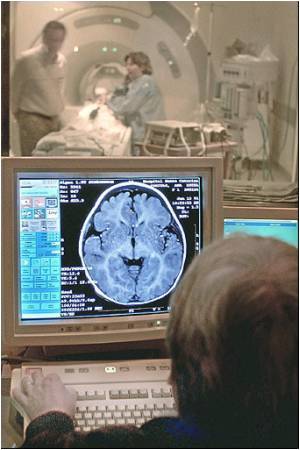
Christopher Clark of Avid Radiopharmaceuticals in Philadelphia, and colleagues examined whether florbetapir F 18 PET imaging (positron scanner) performed during life accurately predicts the presence of beta-amyloid, linked to Alzheimer's, in the brain at autopsy.
Accumulation of the protein, which can be seen in autopsy, is believed to play a role in the disease by forming plaque in some areas of the brain.
The plaque ultimately destroys neurons, leading to irreversible brain degeneration; the disease currently affects 26 million people worldwide including five million Americans, and is becoming more prevalent as seniors make up greater proportions of societies.
"Both diagnosis and treatment of Alzheimer disease (AD) are hampered by the lack of non-invasive biomarkers of the underlying pathology. Between 10 percent and 20 percent of patients clinically diagnosed with AD lack AD pathology at autopsy, and community physicians may not diagnose AD in 33 percent of patients with mild signs and symptoms," the article says in part.
"The ability to identify and quantify brain beta-amyloid could increase the accuracy of a clinical diagnosis of Alzheimer disease."
Advertisement
Source-AFP













